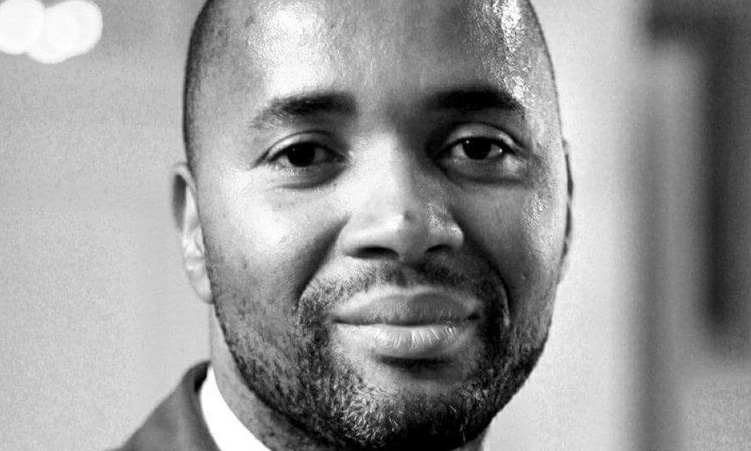The oeuvre of what comrade Hage Geingob has done and said in various permutations – the Namibian house, Harambee, holding hands, pulling together in the same direction – one does not make peace with one’s friends, one makes peace with one’s enemies, no one should feel left out – are a treasure trove for Namibians, thoughtful commentators, historians and students of philosophy and political science.
About three years ago, president Geingob told a senior German politician, on camera, that Africans would not be lectured by anyone on how to run their affairs, including relations with China.
That video went viral and is widely referenced as emancipatory pan-African leadership.
Thus, president Geingob will not only leave political office as having led Namibia during its most difficult hour, but will also leave Namibians with an imprint of doctrines, mobilising language and rhetoric in favour of our collective emancipation and nationbuilding.
We may ask what the Geingob doctrines and assemblage of language mean for nationbuilding?
Simply put, we should hold on to Geingob’s doctrines of solidarity and togetherness and promote them for the sanity of our journey as a young nation.
CROSSROADS
Other urgent points must be made, because we are at the crossroads of our nationbuilding project.
As a longstanding Geingob watcher and senior aide, I have witnessed his consistency and sense of gravity, both as founding prime minister and now as the third president, on key issues that make or break a nation.
It has been nothing but inspiring.
As the father of Namibia’s Constitution and prime minister responsible for dismantling the tribal apartheid bantustans, president Geingob has constantly cautioned against the rise of the tribe at the expense of nationbuilding, which we undertook with equal anxiety and excitement in 1990.
I recall how during a meeting in 2002, Chief Munjuku Nguvauva II of the Ovambanderu requested the government to recognise ‘Otjimbanderu’ as a separate language from Otjiherero.
Visibly disappointed, Geingob cautioned that such a demand would only create unnecessary divisions in an independent Namibia, and went against the tenets of nationbuilding.
DEMANDS
Two decades later, we continue to witness the proliferation of divisions, if not Balkanisation, through ongoing demands for new traditional authorities to be recognised.
Such demands and the rise of tribal identities are not without consequence for the Namibian identity, which president Geingob implores us to elevate to a higher canon for the nation to survive.
We should not celebrate tribal identities at the expense of what the president colloquially refers to as the ‘Namibian tribe’.
It is an inconclusive conversation, but the revolutionary leader of Frelimo and founding president of Mozambique, Samora Machel, is right when he says, “for the nation to live, the tribe must die”.
In that vein, when president Geingob constantly encourages us to pause and rise above tribal identity (Kavango, Herero, German, Owambo, Damara, Nama, Afrikaner, etc) that reinforce “otherness” in the Namibian House, the president is consistent in his role as the guarantor of the cohesion of the Namibian people.
In fact, this is the point lesson-givers Ndumbah Kamanyah and Rui Tyitende neglect in their commentary after the president attended the San and Damara festivals two weeks ago.
The tangible and symbolic direction the president is seeking to achieve through his actions and language is regrettably missed by our impatient commentators.
RESPONSIBILITY
For the record, it should be stated that president Geingob, who has attended cultural festivals in Zambezi, Omusati, the southern regions and others, also attended cultural festivals in Kunene after independence.
However, following Justus Garoëb’s refusal to seek recognition from the government, the president correctly stayed away and only attended two weeks ago in the presence of chief //Gaseb, chairperson of the Council of Traditional Leaders.
We should accept that for the president to be a guarantor of unity, the office itself demands that he/she must maintain a safe distance vis-à-vis their tribal identity, which inevitably is narrow and dangerous, in pursuing national cohesion.
The president and leaders with a national vocation belong to all Namibians and their acts should promote the values of the Namibian house.
In essence, it is why president Geingob places a bigger responsibility on leaders pursuing the path of nationbuilding.
Thus, in recent years, the president has advanced the view that, just like Marxian ideology which required leaders to commit class suicide, for the Namibian house to endure, “leaders may also need to commit tribal suicide”.
This is consistent with what president Geingob has also been saying, “a revolutionary cannot be a tribalist or a racist”.
COMMON WILL
In his book ‘Identity: The Demand for Dignity and the Politics of Resentment’, noted scholar Francis Fukuyama rightly cautions against narrow forms of recognition based on tribe, religion and ethnicity as hostile to a democracy.
President Geingob goes further. He argues that in Namibia we must work hard to shape a Namibian identity that transcends socially constructed regional and ethnic identities, which are antithetical to our rallying motto ‘One Namibia, one Nation’.
As Namibians, we should recognise that our historical path towards a nation is not dynastic and would require, as per Ernst Renan, “common will in the present” to shape it.
Inevitably, it may also require that we borrow from president Geingob and commit tribal suicide for the nation to endure.
- Alfredo Tjiurimo Hengari is an adviser to president Geingob and holds a PhD in political science from the University of Paris Pantheon-Sorbonne.
Stay informed with The Namibian – your source for credible journalism. Get in-depth reporting and opinions for
only N$85 a month. Invest in journalism, invest in democracy –
Subscribe Now!







